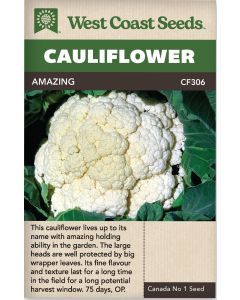Soyez le premier à commenter ce produit
PRODUCT DETAILS
Papaver nudicaule. The Iceland Poppy is a hardy, but short-lived perennial, grown as a biennial in Coastal gardens. Either way, they self sow readily, so will last for years at a time. The large, cup shaped blooms have a texture like crepe paper and appear in a range of subdued pastel colours - apricot, gold, tangerine, and white. Sow Iceland Poppy seeds in early spring or late fall where they are to grow permanently. The flower stalks grow to around 30c (12") tall, and are among the longest-lasting poppies as cut flowers. They are highly attractive to honeybees and bumblebees, with seeds that are easy to collect and disperse. Unlike the California Poppy, this variety usually remains where it was planted. All parts of the plant are mildly toxic, but acrid enough that animals will not eat them.
- Perennial
- Delicate and bright
- Hardy, but short lived
- Deer resistant
- Papaver nudicaule
All About Iceland Poppy
Latin
Papaver nudicaule (perennial), P. rhoeas & P. somniferum (both annual)
Family: Papaveraceae
Difficulty
Easy
Season & Zone
Exposure: Full sun to partial shade
Zone: P. nudicaule is hardy to Zone 3
Timing
Start perennial poppies outdoors in early spring, when some chance of frost is still a possibility. Start annual varieties outdoors at the same time in Zones 3-7. In Zones 8-10, the best bet is to direct sow in the fall.
Poppies are famously difficult to transplant, so starting them indoors is not recommended. If absolutely necessary, use peat or coir pots, and maintain a soil temperature of 12°C (55°F). Seeds will sprout in 20-30 days.
Starting
Sow on the surface of the soil, or barely cover seeds. Thin to a minimum of 15cm (6″) apart.
Growing
Poppies are easy to grow and the self-sow with abandon, without becoming weedy. Simply pull up unwanted plants (an easy task) before they bloom, or better yet, let them tell you where they want to grow. They will thrive for years at a time in surprising spots, like a crack in the driveway. Other times, they simply won’t take, no matter how much you try. Keep them moderately well watered in hot, dry weather, and do not fertilize.
For the largest heads on Papaver somniferum, sow seeds in the fall or early winter. Thin plants to allow them some space, and keep the area weeded as plants grow larger. Grow this variety in full sun in well-drained, but ordinary garden soil. If spring and summer are cool and damp, or plants are over-crowded, expect smaller seed heads.
| Marque | West Coast Seeds |
|---|---|
| Numéro de Pièce du Fabricant | FL3141A |
| UPC | 687704006080 |
| Famille | Coquelicots |
| Groupe | Perennial |
| Certifié biologique | Non |
| Héritage | Non |
| Pollinisation Libre | Oui |
| Hybride | Non |
| Options d’Emballage | Pack A |
| Langue du paquet | Anglais |
| Type de Expédition | Graines |














Login and Registration Form